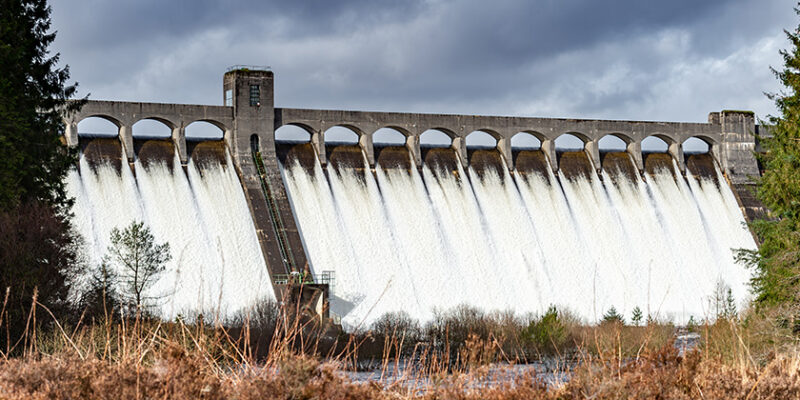Water, essential for life on this Earth, is one of our most precious resources. In the energy mix, waterpower has been used for thousands of years to mill grain, dye clothing, for processing in industry and since 1878, to produce hydroelectricity which is renewable, reliable and clean. Representing 14% of global generation, hydropower is also an export target for Scottish and UK expertise and is a useful asset in balancing the grid.
Water is a flexible resource. In 1789, the ability to separate Hydrogen gas and Oxygen gas from water by electrolysis was developed. However, Hydrogen as an energy fuel or processing gas (e.g. for Ammonia) has historically been less expensive if extracted from greenhouse gasses (Methane) using power sourced from cheaper fossil fuels. In phasing out fossil fuels, we are now on the brink of a revolution in electrolysis, driven by renewables, splitting Hydrogen from water for use as clean green power in our everyday home and industrial energy mix including transport on land and sea.
In the transition from fossil fuels, the national grid system of transmitting electricity across Great Britain must evolve to meet the significant change in locations of energy generation, and the unprecedented increase in demand for electrification of energy needs over the next 25 years. The growing reliance on intermittent green energy sources such as wind and solar, requires greater attention and resource to balance the grid’s supply and demand, operating within a narrowly defined transmission frequency. Fossil fuel power stations were able to react instantly to such demands, but intermittent renewables do not have the same speed or nature of reaction, consequently driving an imperative for industrial scale batteries to store renewable power when reacting to pricing and to critical grid demands.
Both Hydrogen and Water as sources of power generation can be stored. Since the 1960s, four large systems of pumped storage hydropower have been developed to act as a form of battery, storing up power on demand when needed and is a proven technology, and more are planned. Pumped storage hydro comes at a high capital cost to build, but a relatively low cost to run as a mega battery. The published Coire Glas proposal in the Great Glen, for example, aims to offer 1.3GW of electricity at a moment’s notice, an estimated equivalent of 3 million homes. These crucial assets require assistance from policies that spread high capital costs and allow funding to be serviced.
Hydrogen has the flexibility to be transported, stored or piped but, without scale and dedicated infrastructure, still at relatively high costs of production, transport and storage. Positively, industries already using fossil fuel sourced hydrogen will be able to decarbonise once sufficient green hydrogen is available. Overall, hydrogen has several hurdles still to climb, including public perception, lack of infrastructure, and in developing supportive governmental policies and regulations to provide confidence in the consents process, and appetite of major consumers.
The findings of a recent Gillespie Macandrew survey of renewable energy and infrastructure clients described the top three barriers to energy transition with consistent views, defining Grid connection certainty, lengthy planning consent process, and public perception as challenges. Tackling such hurdles and engaging public and political support, and in turn insurers, funders and developers to grow confidence in major developments requires education, and awareness, at all levels, so we can achieve a just transition where the power of water continues to support our energy and grid balancing needs.
*This article originally featured in The Scotsman on 28 July 2025


